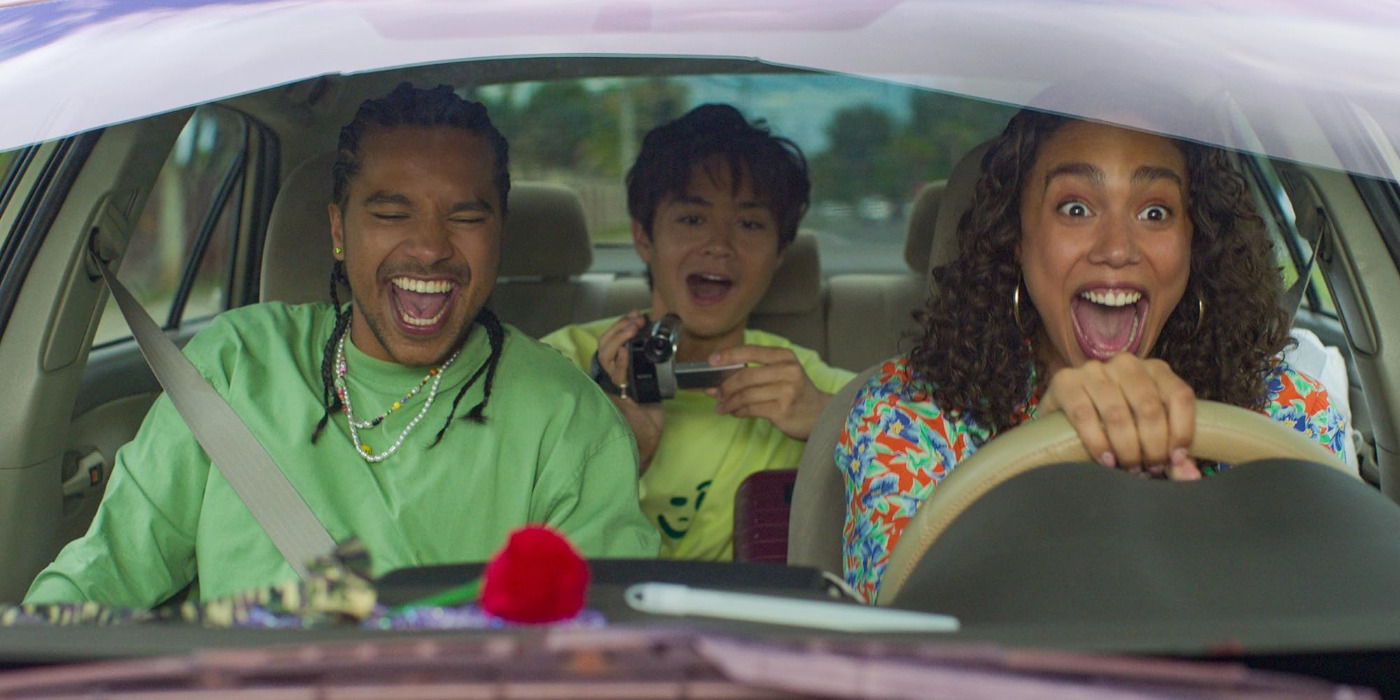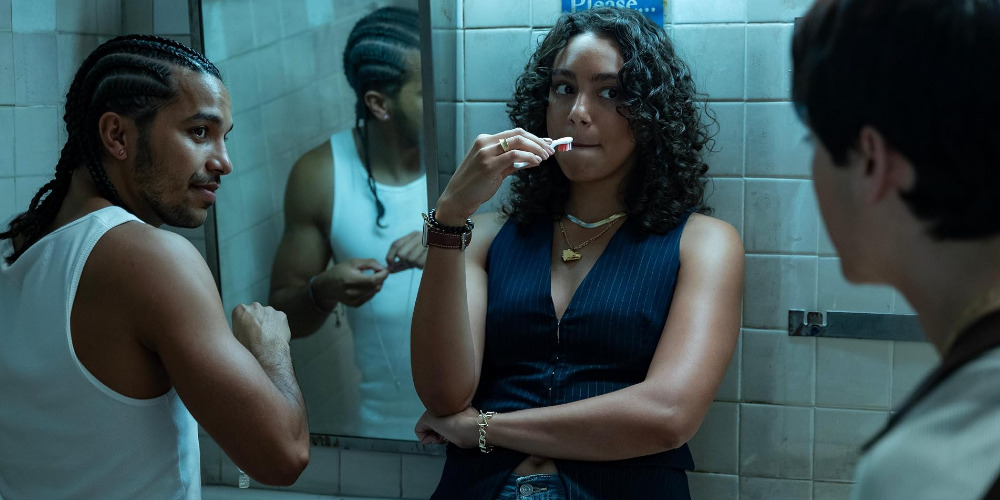Netflix’s comedy show centering around reggaeton, ‘Neon,’ created by Shea Serrano and Max Searle, takes the audience on the journey of an aspiring artist as he tries to make it big in the industry. Santi, a talented reggaeton musician, moves from a small town in Florida to Miami after his breakout song ‘Exagerao,’ gains traction. Backed by his dedicated but equally broke friends, Ness, the manager, and Felix, the creative director, Santi faces the tumultuous ups and downs of the music scene, hoping to make a name for himself.
‘Neon,’ a show befit for dreamers and music lovers, maintains a feel-good vibe as it follows the three friends around The Magic City in search of some glamour for themselves. Since Santi’s story is so deeply interwoven in his artistry within the reggaeton genre, the show inevitably dives into the cultural aspect of the same. Therefore, if Santi’s musical journey has made you curious about the show’s roots in reggaeton and reality, here is everything you need to know about the true origin of ‘Neon.’
A Show About An Aspiring Reggaeton Artist
Netflix’s ‘Neon’ is not based on a true story, yet strives to bring an authentic tale about one of the most popular and rapidly growing music genres of contemporary times. The show’s protagonist, Santi, lives and dies by his music and puts everything on the line for his dreams, alongside Ness and Felix, both equipped with indomitable faith in their friends’ musical talent. As a result, reggaeton, Santi’s genre of expertise, forms one of the crucial cornerstones of the narrative.

Therefore, the show’s authenticity only benefits from the involvement of reggaeton legend Daddy Yankee from behind the cameras as an executive producer (and in front of it as well, for a promised cameo). The multiple Grammy-winning artist, dubbed “The King of Reggaeton,” is perhaps best known for his hit single ‘Gasolina’ and feature on Luis Fonsi’s song ‘Despacito,’ which dominated the charts during its release.
Likewise, the show builds its musical identity, another cornerstone of the narrative, through the music group Tainy & One Six, who wrote and produced original music for the show, which plays a significant role in Santi’s developing career. In that regard, the show employs multiple authentic mechanisms to ensure it does justice by the show’s focus on the reggaeton genre.
In recent years, the music industry has seen a rapid rise of reggaeton within mainstream circles, with Bad Bunny, 2020’s number-one streamed artist on Spotify, helming the genre’s popularity. Therefore, ‘Neon’ proposes the perfect story for fans of the genre who wish to learn more about the culture around the music.
However, since ‘Neon’ promises an exploration of the culture surrounding reggaeton, the show has received some criticism for the lack of Puerto Rican voices in its writer’s room. Almost a year before the show’s premiere, Latino Rebels, a digital media site focused on the US Latino world, expressed concerns about ‘Neon’s’ potential for inauthenticity. When Netflix first announced the show, although the writing department was pleasantly diverse with three Latinax and four Black writers, there weren’t any Puerto Rican writers in the mix.
Since the reggaeton genre has deep roots in Puerto Rico and its culture, the Latino Rebels felt it unfair that no Puerto Rican creative made it behind the cameras, ensuring authenticity in the show’s storytelling. “[So] why would a show, with a Puerto Rican lead based on reggaetón not find one Boricua with the lived experience to at least help with the script?” read the site’s 2022 article. Still, recognizing the importance of stories like the one depicted in ‘Neon,’ their article concluded with the hope that the show succeeded in its aim for authentic representation, either by the recruitment of Puerto Rican voices or otherwise.
As ‘Neon’ stands now, the authenticity behind its depiction of Santi’s story is up to the audiences to decide. According to Director Oz Rodriguez, who helmed the show’s pilot episode, lead actor Tyler Dean Flores, who is a New York Puerto Rican himself, did his due diligence for his performance as Santi. Spending time in reggaeton concerts, speaking to real-life artists within the genre, and “just soaking in the culture,” Flores ensured his portrayal hit the mark and got people invested in Santi’s reggaeton journey.
“We’re starting from the bottom,” said Rodriguez in a conversation with Tudum. “The fact that it was the story about these Latino kids trying to make it [excited me]… They’re not there yet, but they’re chasing the bright neon lights,” he concluded. Ultimately, ‘Neon,’ not based on a true story, does its best to depict the reality of the music industry, especially as it pertains to young artists, reggaeton or otherwise, in a fun and enjoyable fictitious manner.
Read More: Best Musician Movies of All Time


You must be logged in to post a comment.